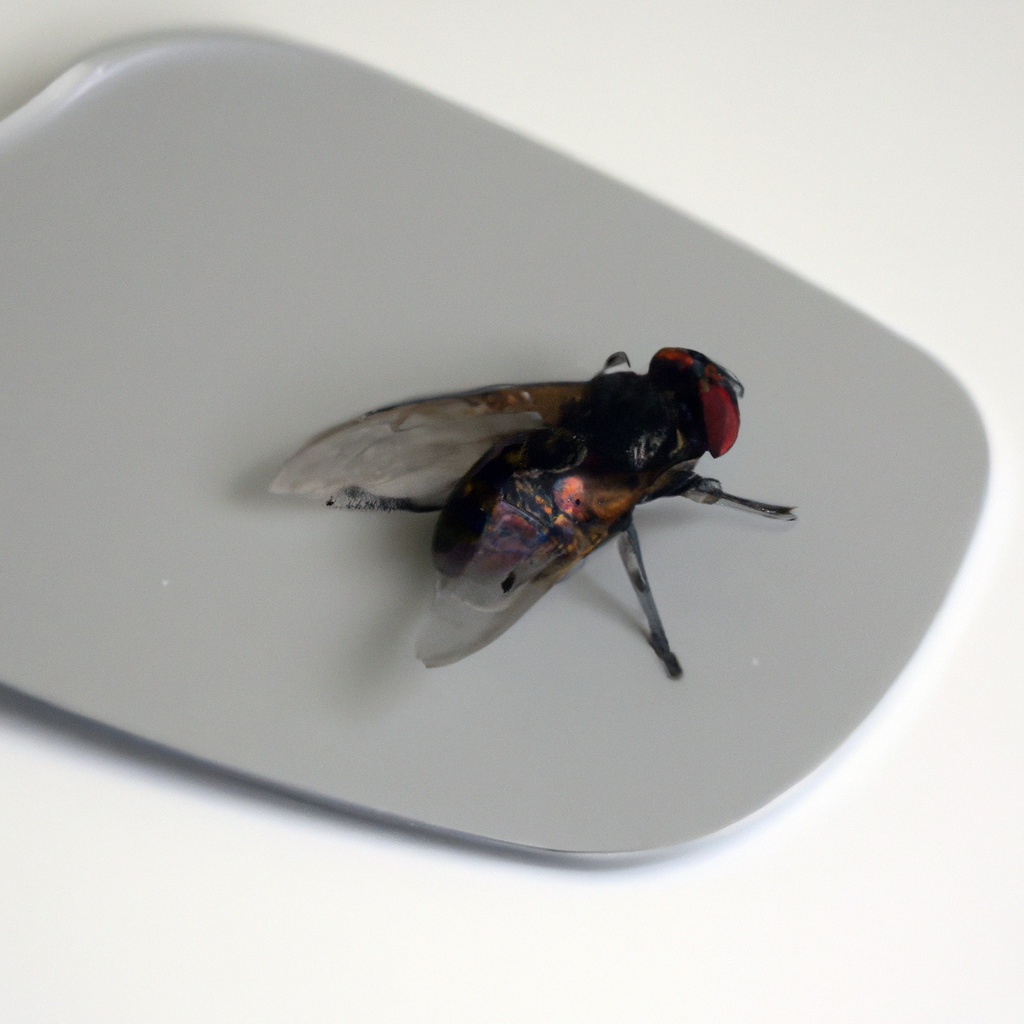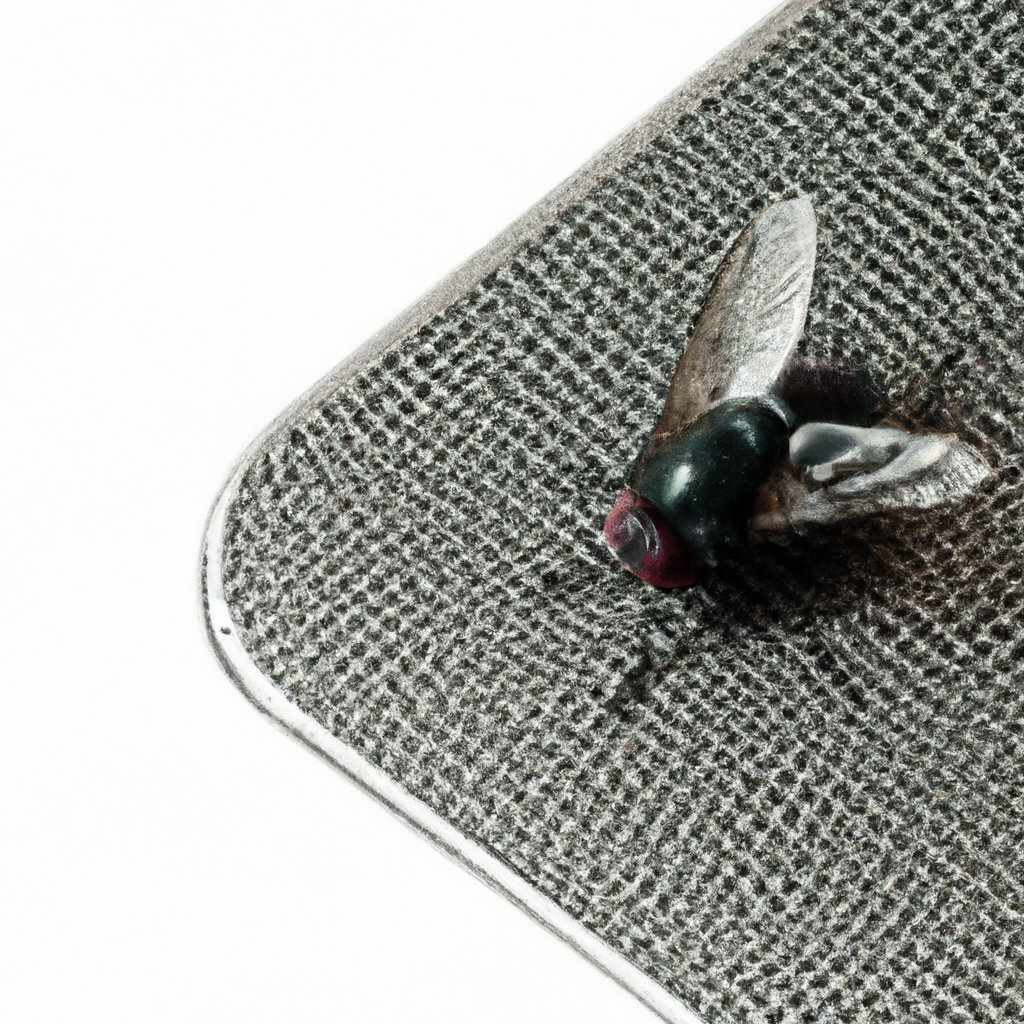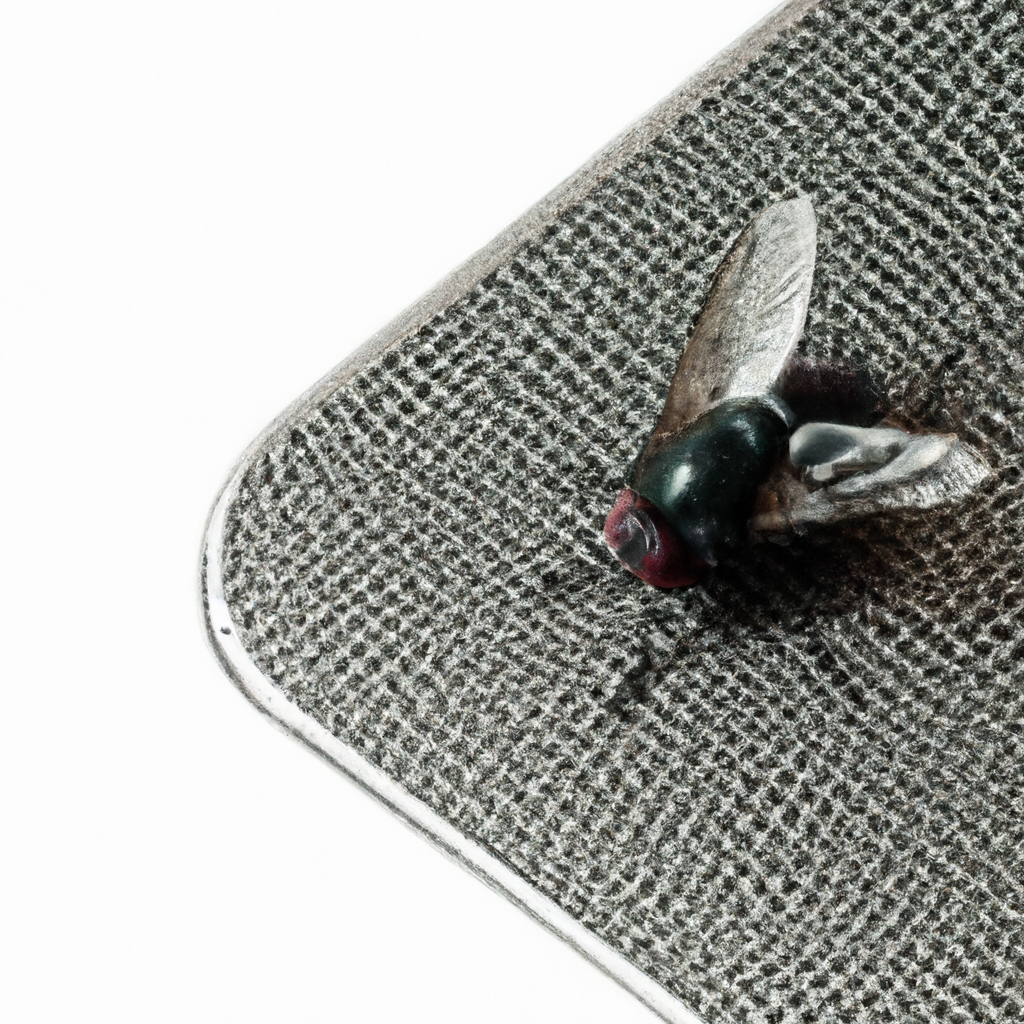So you’re fed up with those pesky house flies buzzing around and invading your space? Well, look no further! In this article, you’ll discover ten incredibly effective methods to bid farewell to those annoying creatures once and for all. From simple homemade traps to natural repellents, we’ve got you covered. Say goodbye to the constant buzzing and dive into a fly-free home with these tried and tested techniques.

Identify the problem
Understanding house flies
House flies, scientifically known as Musca domestica, are common household pests that can cause a nuisance and pose health risks. These flies are attracted to food, waste, and decaying organic matter, making our homes an ideal breeding ground for them. Understanding the habits and characteristics of house flies is the first step in effectively getting rid of them.
House flies are small insects, usually measuring around 1/4 inch in length. They have a grayish appearance with four distinct dark stripes on their thorax. These flies have compound eyes, which allow them to detect movement and find potential food sources.
Recognizing signs of a house fly infestation
Identifying signs of a house fly infestation is crucial in addressing the problem promptly. Some common signs include:
- Frequent sightings of flies in different areas of your home, especially around garbage cans, kitchen, and food storage areas.
- Clusters of flies resting on walls or windows.
- The presence of fly larvae or maggots in decaying matter or waste bins.
- Increased fly activity during warmer months.
Maintain cleanliness
Keep food and surfaces clean
One of the most effective ways to prevent and deter house flies is by ensuring cleanliness in your home. Regularly clean your kitchen countertops, dining tables, and other surfaces where food is prepared or consumed. Avoid leaving dirty dishes or food scraps out for extended periods. Wipe up any spills or crumbs promptly.
Properly dispose of waste
House flies are attracted to waste, so it is vital to dispose of it properly. Use covered garbage cans and make sure they are tightly sealed. Promptly empty and clean your garbage cans to prevent any leftover food or organic matter from becoming a breeding site for flies.
Regularly clean garbage cans
Even with proper waste disposal, garbage cans can still harbor lingering odors and attract flies. Regularly clean your garbage cans with a mixture of water and disinfectant. Scrub the inside and outside of the bins thoroughly and rinse them out before use.
Eliminate fly breeding sites
Clean up pet waste
If you have pets, their waste can be a significant attractant for house flies. Clean up after your pets regularly and ensure that their waste is properly disposed of in a sealed bag or flushed down the toilet. Be diligent in picking up your yard or litter box to prevent flies from breeding in the feces.
Remove standing water
House flies require moist environments to lay their eggs, so it is essential to eliminate any standing water around your home. Check for leaky pipes, clogged gutters, or any other areas where water may accumulate. Fix any issues promptly and ensure proper drainage to prevent fly breeding.
Dispose of decaying organic matter
Decaying organic matter such as rotting fruits, vegetables, or dead animals can attract house flies. Regularly inspect your garden, compost pile, or any outdoor areas where organic matter may accumulate. Dispose of any decaying material properly to prevent fly infestations.
Implement physical deterrents
Install fly screens on doors and windows
Fly screens are an effective barrier that prevents flies from entering your home while allowing fresh air to circulate. Install screens on all doors and windows, especially in areas where house flies are commonly found. Make sure the screens are intact to prevent any gaps or openings where flies can enter.
Use fly strips or ribbons
Fly strips or ribbons are sticky traps that attract and capture flies when hung in strategic locations. These can be particularly useful in areas where you notice a high concentration of flies. Hang the strips or ribbons near windows, doors, or other fly entry points to effectively catch the pests.
Place fly traps strategically
Fly traps are another physical deterrent that can help reduce the population of house flies. There are various types of traps available, including jar traps, bag traps, or electric traps. Position these traps in areas where flies are often seen, such as near garbage cans or outdoor dining areas.

Try natural repellents
Essential oils
Certain essential oils have properties that repel house flies. Peppermint, lavender, eucalyptus, and citronella oils are known to be effective in deterring flies. Mix a few drops of these oils with water and spray the solution in areas where flies tend to congregate, or use oil-infused candles or diffusers to spread the scent.
Herbs and plants
Some herbs and plants have natural fly-repellent properties. Planting basil, lavender, mint, or marigold around your home can help deter house flies. These plants emit scents that flies find unpleasant, keeping them at bay. Alternatively, you can crush the leaves and place them in bowls or sachets near fly-prone areas.
Vinegar and citrus solutions
The strong odor of vinegar and citrus can repel house flies. Create a solution by mixing equal parts vinegar and water or citrus juice and water in a spray bottle. Use this solution to wipe down surfaces or spray it in areas where flies are present. The scent will deter the flies from landing or staying in those areas.
Make use of chemical insecticides
Pyrethrin-based sprays
Pyrethrin-based sprays are commonly used to kill and repel flies. These sprays contain natural ingredients derived from chrysanthemum flowers and are considered low in toxicity for humans and pets. When using these sprays, be sure to follow the instructions carefully and apply them in areas where flies are present.
Insecticidal baits
Insecticidal baits are designed to attract and kill house flies. These baits contain a mixture of sugar or another attractive substance and a pesticide. The flies are lured to the bait, consume it, and are subsequently killed. Follow the instructions on the product label for proper placement and usage.
Space sprays or foggers
Space sprays or foggers are aerosol insecticides that release a fine mist to kill flies in enclosed areas. These can be useful when dealing with a heavy fly infestation. Before using a space spray or fogger, ensure that all doors and windows are closed, and follow the instructions for ventilation and re-entry times.
Consider biological control methods
Introduce fly predators
Fly predators, such as parasitic wasps, are natural enemies of house flies. These tiny insects lay their eggs inside fly pupae, effectively reducing the fly population. You can purchase fly predator kits online or from garden supply stores and release them in fly breeding areas, such as compost piles or animal waste areas.
Use beneficial nematodes
Beneficial nematodes are microscopic worms that feed on fly larvae and pupae. They are harmless to humans, pets, and plants but lethal to flies. These nematodes can be purchased in powder or sponge forms and are applied to soil or areas where fly larvae are likely to be found.
Release insect-parasitic fungi
Certain species of fungi, such as Beauveria bassiana, can infect and kill house flies. These fungi are available in the form of spores or sprays that can be applied in fly-infested areas. The spores attach to the flies’ bodies, penetrate their exoskeleton, and cause fatal infections. Follow the instructions on the product for safe and effective use.
Employ homemade remedies
Milk and sugar trap
A milk and sugar trap is a simple homemade remedy to catch and kill house flies. Mix equal parts milk and sugar in a shallow dish or bowl. Stir the mixture to dissolve the sugar completely. The sweet scent of the mixture will attract the flies, causing them to drown when they land in it.
Water and dish soap solution
A water and dish soap solution can be used to create fly traps. Fill a bowl or jar with water and add a few drops of liquid dish soap. Stir the solution gently to create a soapy consistency. Flies will be attracted to the water but get trapped due to the soapy surface tension, preventing them from escaping.
Plastic bag and pennies technique
The plastic bag and pennies technique is an old folklore method believed to deter flies. Fill a clear plastic bag with water and place a few pennies inside. Hang the bag near doors, windows, or outdoor areas where flies are active. The reflection of light on the water-filled bag is thought to confuse the flies and keep them away.
Ensure proper waste management
Keep trash tightly sealed
Proper waste management is crucial in preventing fly infestations. Always keep your trash tightly sealed using lids or heavy-duty garbage bags. Flies are attracted to the odors emitted by decaying matter, so ensuring a secure seal will minimize their access to potential breeding sites.
Use garbage bags
Using garbage bags to line your trash cans adds an extra layer of protection against flies. Opt for sturdy, tear-resistant bags that can contain any leakage or odors effectively. Tie the bags securely before disposing of them to prevent flies from being attracted to exposed waste.
Dispose of organic waste correctly
When dealing with organic waste, such as food scraps or yard trimmings, it is essential to dispose of it correctly. Compost or dispose of organic waste in designated bins or facilities, following local regulations and guidelines. Proper disposal will not only prevent fly infestations but also help reduce environmental impact.
Seek professional pest control
When DIY methods fail
If your efforts to eliminate house flies on your own have proven unsuccessful, it may be time to seek professional pest control assistance. Pest control professionals have the knowledge, experience, and tools to effectively address fly infestations. They can identify the underlying causes and implement targeted treatment methods to eradicate the problem.
Choosing a reputable pest control service
When selecting a pest control service, it is essential to choose a reputable and licensed company. Look for reviews, recommendations, and certifications to ensure the service provider is qualified and trustworthy. Request an inspection and written estimate before committing to any services to understand the scope of work and associated costs.
Understanding the cost implications
The cost of professional pest control services for house fly infestations can vary depending on factors such as the severity of the infestation, the size of the property, and the treatment methods used. It is advisable to get multiple quotes from different pest control companies and compare their services, guarantees, and costs before making a decision.
In conclusion, getting rid of house flies requires a multi-faceted approach that combines cleanliness, physical deterrents, natural repellents, chemical insecticides, biological control methods, homemade remedies, and proper waste management. By implementing these effective strategies, you can effectively control and eliminate house fly infestations, creating a clean and fly-free environment in your home. Remember that persistence and consistent efforts are key in maintaining fly-free living spaces.




